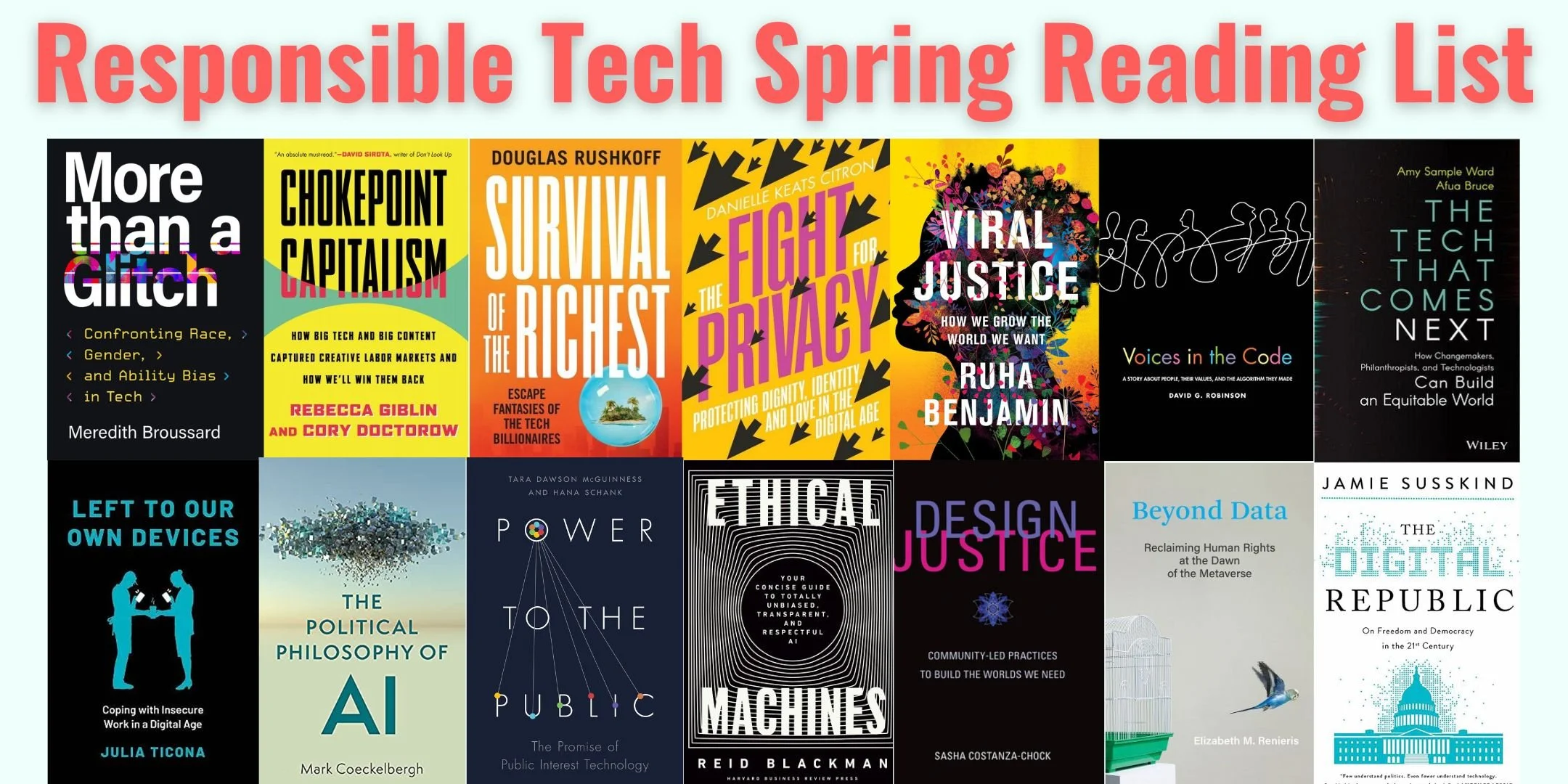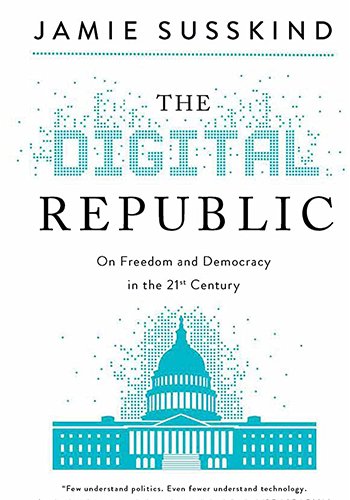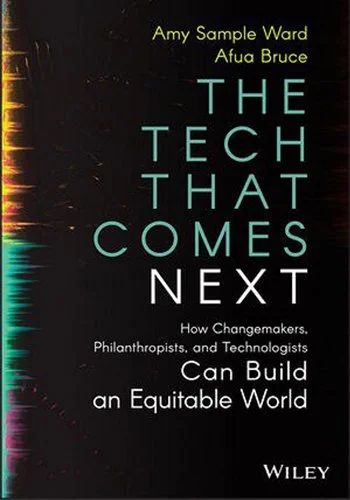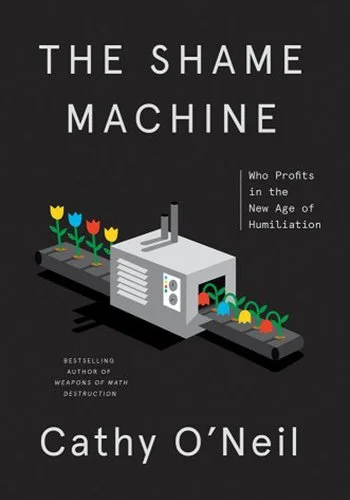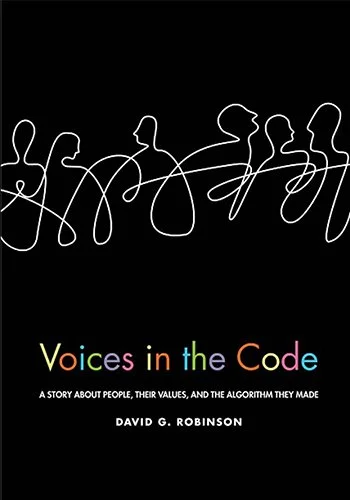All Tech Is Human’s Spring Into Responsible Tech Reading List
All Tech Is Human’s Spring into Responsible Tech Reading List is a curated list of 20 books that are helping to educate, inform, and inspire the growing Responsible Tech Movement.
Atlas of AI by Kate Crawford
In Atlas of AI: Power, Politics, and the Planetary Costs of Artificial Intelligence Crawford reveals how the global networks underpinning AI technology are damaging the environment, entrenching inequality, and fueling a shift toward undemocratic governance. She takes us on a journey through the mining sites, factories, and vast data collections needed to make AI "work" — powerfully revealing where they are failing us and what should be done. Atlas of AI was named one of the best books on technology in 2021 by the Financial Times.
While technical systems present a veneer of objectivity and neutrality, Crawford shows how they are designed to serve and intensify existing systems of power. Drawing on a decade of original research, she shows how the new infrastructures of AI reflect the beliefs and perspectives of a small group of people and serve the interests of the few at the expense of the many.
Beyond Data: Reclaiming Human Rights at the Dawn of the Metaverse by Elizabeth Renieris
Ever-pervasive technology poses a clear and present danger to human dignity and autonomy, as many have pointed out. And yet, for the past fifty years, we have been so busy protecting data that we have failed to protect people. In Beyond Data, Elizabeth Renieris argues that laws focused on data protection, data privacy, data security and data ownership have unintentionally failed to protect core human values, including privacy. And, as our collective obsession with data has grown, we have, to our peril, lost sight of what's truly at stake in relation to technological development—our dignity and autonomy as people.
Far from being inevitable, our fixation on data has been codified through decades of flawed policy. Renieris provides a comprehensive history of how both laws and corporate policies enacted in the name of data privacy have been fundamentally incapable of protecting humans. Her research identifies the inherent deficiency of making data a rallying point in itself—data is not an objective truth, and what's more, its “entirely contextual and dynamic” status makes it an unstable foundation for organizing. In proposing a human rights–based framework that would center human dignity and autonomy rather than technological abstractions, Renieris delivers a clear-eyed and radically imaginative vision of the future.
At once a thorough application of legal theory to technology and a rousing call to action, Beyond Data boldly reaffirms the value of human dignity and autonomy amid widespread disregard by private enterprise at the dawn of the metaverse.
Chokepoint Capitalism by Cory Doctorow and Rebecca Giblin
Corporate concentration has breached the stratosphere, as have corporate profits. An ever-expanding constellation of industries are now monopolies (where sellers have excessive power over buyers) or monopsonies (where buyers hold the whip hand over sellers)—or both.
In Chokepoint Capitalism, scholar Rebecca Giblin and writer and activist Cory Doctorow argue we’re in a new era of “chokepoint capitalism,” with exploitative businesses creating insurmountable barriers to competition that enable them to capture value that should rightfully go to others. All workers are weakened by this, but the problem is especially well-illustrated by the plight of creative workers. From Amazon’s use of digital rights management and bundling to radically change the economics of book publishing, to Google and Facebook’s siphoning away of ad revenues from news media, and the Big Three record labels’ use of inordinately long contracts to up their own margins at the cost of artists, chokepoints are everywhere.
Data Driven: Truckers, Technology, and the New Workplace Surveillance by Karen Levy
Long-haul truckers are the backbone of the American economy, transporting goods under grueling conditions and immense economic pressure. Truckers have long valued the day-to-day independence of their work, sharing a strong occupational identity rooted in a tradition of autonomy. Yet these workers increasingly find themselves under many watchful eyes. Data Driven examines how digital surveillance is upending life and work on the open road, and raises crucial questions about the role of data collection in broader systems of social control.
Design Justice by Sasha-Costanza Chock
What is the relationship between design, power, and social justice? “Design justice” is an approach to design that is led by marginalized communities and that aims expilcitly to challenge, rather than reproduce, structural inequalities. It has emerged from a growing community of designers in various fields who work closely with social movements and community-based organizations around the world.
This book explores the theory and practice of design justice, demonstrates how universalist design principles and practices erase certain groups of people—specifically, those who are intersectionally disadvantaged or multiply burdened under the matrix of domination (white supremacist heteropatriarchy, ableism, capitalism, and settler colonialism)—and invites readers to “build a better world, a world where many worlds fit; linked worlds of collective liberation and ecological sustainability.” Along the way, the book documents a multitude of real-world community-led design practices, each grounded in a particular social movement. Design Justice goes beyond recent calls for design for good, user-centered design, and employment diversity in the technology and design professions; it connects design to larger struggles for collective liberation and ecological survival.
Digital Republic by Jamie Susskind
Not long ago, the tech industry was widely admired, and the internet was regarded as a tonic for freedom and democracy. Not anymore. Every day, the headlines blaze with reports of racist algorithms, data leaks, and social media platforms festering with falsehood and hate.
In The Digital Republic, acclaimed author Jamie Susskind argues that these problems are not the fault of a few bad apples at the top of the industry. They are the result of our failure to govern technology properly.
The Digital Republic charts a new course. It offers a plan for the digital age: new legal standards, new public bodies and institutions, new duties on platforms, new rights and regulators, new codes of conduct for people in the tech industry. Inspired by the great political essays of the past, and steeped in the traditions of republican thought, it offers a vision of a different type of society: a digital republic in which human and technological flourishing go hand in hand.
Ethical Machines by Reid Blackman
What will you do when your AI misbehaves? The promise of artificial intelligence is automated decision-making at scale, but that means AI also automates risk at scale. Are you prepared for that risk? Already, many companies have suffered real damage when their algorithms led to discriminatory, privacy-invading, and even deadly outcomes. Self-driving cars have hit pedestrians; HR algorithms have precluded women from job searches; mortgage systems have denied loans to qualified minorities. And often the companies who deployed the AI couldn't explain why the black box made the decision it did. In this environment, AI ethics isn't merely an academic curiosity, it's a business necessity. In "Ethical Machines," Reid Blackman gives you all you need to understand AI ethics as a risk management challenge. He'll help you build, procure, and deploy AI in a way that's not only ethical but also safe in terms of your organization's reputation, regulatory compliance, and legal standing--and do it at scale. And don't worry--the book's purpose is to get work done, not to ponder deep and existential questions about ethics and technology. Blackman's clear and accessible writing helps make a complex and often misunderstood concept like ethics easy to grasp. Most importantly, Blackman makes ethics actionable by tackling the big three ethical risks with AI--bias, explainability, and privacy--and tells you what to do (and what not to do) to mitigate them. With practical approaches to everything from writing a strong statement of AI ethics principles to creating teams that effectively evaluate ethical risks, "Ethical Machines" is the one guide you need to ensure your AI advances your company's objectives instead of undermining them.
How Data Happened: A History from the Age of Reason to the Age of Algorithms by Chris Wiggins and Matthew Jones
From facial recognition—capable of checking people into flights or identifying undocumented residents—to automated decision systems that inform who gets loans and who receives bail, each of us moves through a world determined by data-empowered algorithms. But these technologies didn’t just appear: they are part of a history that goes back centuries, from the census enshrined in the US Constitution to the birth of eugenics in Victorian Britain to the development of Google search.
Expanding on the popular course they created at Columbia University, Chris Wiggins and Matthew L. Jones illuminate the ways in which data has long been used as a tool and a weapon in arguing for what is true, as well as a means of rearranging or defending power. They explore how data was created and curated, as well as how new mathematical and computational techniques developed to contend with that data serve to shape people, ideas, society, military operations, and economies. Although technology and mathematics are at its heart, the story of data ultimately concerns an unstable game among states, corporations, and people. How were new technical and scientific capabilities developed; who supported, advanced, or funded these capabilities or transitions; and how did they change who could do what, from what, and to whom?
Wiggins and Jones focus on these questions as they trace data’s historical arc, and look to the future. By understanding the trajectory of data—where it has been and where it might yet go—Wiggins and Jones argue that we can understand how to bend it to ends that we collectively choose, with intentionality and purpose.
Internet for the People by Ben Tarnoff
In Internet for the People, leading tech writer Ben Tarnoff offers an answer. The internet is broken, he argues, because it is owned by private firms and run for profit. Google annihilates your privacy and Facebook amplifies right-wing propaganda because it is profitable to do so. But the internet wasn't always like this—it had to be remade for the purposes of profit maximization, through a years-long process of privatization that turned a small research network into a powerhouse of global capitalism. Tarnoff tells the story of the privatization that made the modern internet, and which set in motion the crises that consume it today.
The solution to those crises is straightforward: deprivatize the internet. Deprivatization aims at creating an internet where people, and not profit, rule. It calls for shrinking the space of the market and diminishing the power of the profit motive. It calls for abolishing the walled gardens of Google, Facebook, and the other giants that dominate our digital lives and developing publicly and cooperatively owned alternatives that encode real democratic control. To build a better internet, we need to change how it is owned and organized. Not with an eye towards making markets work better, but towards making them less dominant. Not in order to create a more competitive or more rule-bound version of privatization, but to overturn it. Otherwise, a small number of executives and investors will continue to make choices on everyone’s behalf, and these choices will remain tightly bound by the demands of the market. It's time to demand an internet by, and for, the people now.
Invisible Women: Exposing Data Bias in a World Designed for Men by Caroline Criado Perez
Data is fundamental to the modern world. From economic development, to healthcare, to education and public policy, we rely on numbers to allocate resources and make crucial decisions. But because so much data fails to take into account gender, because it treats men as the default and women as atypical, bias and discrimination are baked into our systems.
And women pay tremendous costs for this bias in time, money, and sometimes with their lives. Celebrated feminist advocate Caroline Criado Perez investigates the shocking root cause of gender inequality and research in Invisible Women, diving into women’s lives at home, the workplace, the public square, the doctor’s office, and more.
Left to Our Own Devices: Coping with Insecure Work in a Digital Age by Julia Ticona
Over the past three decades, digital technologies like smartphones and laptops have transformed the way we work in the US. At the same time, workers at both ends of the income ladder have experienced rising levels of job insecurity and anxiety about their economic futures. In Left to Our Own Devices, Julia Ticona explores the ways that workers use their digital technologies to navigate insecure and flexible labor markets.
Through 100 interviews with high and low-wage precarious workers across the US, she explores the surprisingly similar "digital hustles" they use to find work and maintain a sense of dignity and identity. Ticona then reveals how the digital hustle ultimately reproduces inequalities between workers at either end of polarized labor markets. A moving and accessible look at the intimate consequences of contemporary capitalism, Left to Our Own Devices will be of interest to sociologists, communication and media studies scholars, as well as a general audience of readers interested in digital technologies, inequality, and the future of work in the US.
More Than a Glitch by Meredith Broussard
Description: The word “glitch” implies an incidental error, as easy to patch up as it is to identify. But what if racism, sexism, and ableism aren't just bugs in mostly functional machinery—what if they're coded into the system itself? In the vein of heavy hitters such as Safiya Umoja Noble, Cathy O'Neil, and Ruha Benjamin, Meredith Broussard demonstrates in More Than a Glitch how neutrality in tech is a myth and why algorithms need to be held accountable.
Broussard, a data scientist and one of the few Black female researchers in artificial intelligence, masterfully synthesizes concepts from computer science and sociology. She explores a range of examples: from facial recognition technology trained only to recognize lighter skin tones, to mortgage-approval algorithms that encourage discriminatory lending, to the dangerous feedback loops that arise when medical diagnostic algorithms are trained on insufficiently diverse data. Even when such technologies are designed with good intentions, Broussard shows, fallible humans develop programs that can result in devastating consequences.
Broussard argues that the solution isn't to make omnipresent tech more inclusive, but to root out the algorithms that target certain demographics as “other” to begin with. With sweeping implications for fields ranging from jurisprudence to medicine, the ground-breaking insights of More Than a Glitch are essential reading for anyone invested in building a more equitable future.
The Fight for Privacy: Protecting Dignity, Identity, and Love in the Digital Age by Danielle Keats Citron
Privacy is disappearing. From our sex lives to our workout routines, the details of our lives once relegated to pen and paper have joined the slipstream of new technology. As a MacArthur fellow and distinguished professor of law at the University of Virginia, acclaimed civil rights advocate Danielle Citron has spent decades working with lawmakers and stakeholders across the globe to protect what she calls intimate privacy—encompassing our bodies, health, gender, and relationships. When intimate privacy becomes data, corporations know exactly when to flash that ad for a new drug or pregnancy test. Social and political forces know how to manipulate what you think and who you trust, leveraging sensitive secrets and deepfake videos to ruin or silence opponents. And as new technologies invite new violations, people have power over one another like never before, from revenge porn to blackmail, attaching life-altering risks to growing up, dating online, or falling in love.
A masterful new look at privacy in the twenty-first century, The Fight for Privacy takes the focus off Silicon Valley moguls to investigate the price we pay as technology migrates deeper into every aspect of our lives: entering our bedrooms and our bathrooms and our midnight texts; our relationships with friends, family, lovers, and kids; and even our relationship with ourselves.
The Political Philosophy of AI by Mark Coeckelbergh
Description: Political issues people care about such as racism, climate change, and democracy take on new urgency and meaning in the light of technological developments such as AI. How can we talk about the politics of AI while moving beyond mere warnings and easy accusations?
This is the first accessible introduction to the political challenges related to AI. Using political philosophy as a unique lens through which to explore key debates in the area, the book shows how various political issues are already impacted by emerging AI technologies: from justice and discrimination to democracy and surveillance. Revealing the inherently political nature of technology, it offers a rich conceptual toolbox that can guide efforts to deal with the challenges raised by what turns out to be not only artificial intelligence but also artificial power.
This timely and original book will appeal to students and scholars in philosophy of technology and political philosophy, as well as tech developers, innovation leaders, policy makers, and anyone interested in the impact of technology on society.
Power to the Public by Tara Dawson McGuinness & Hana Schank
As the speed and complexity of the world increases, governments and nonprofit organizations need new ways to effectively tackle the critical challenges of our time—from pandemics and global warming to social media warfare. In Power to the Public, Tara Dawson McGuinness and Hana Schank describe a revolutionary new approach—public interest technology—that has the potential to transform the way governments and nonprofits around the world solve problems. Through inspiring stories about successful projects ranging from a texting service for teenagers in crisis to a streamlined foster care system, the authors show how public interest technology can make the delivery of services to the public more effective and efficient.
At its heart, public interest technology means putting users at the center of the policymaking process, using data and metrics in a smart way, and running small experiments and pilot programs before scaling up. And while this approach may well involve the innovative use of digital technology, technology alone is no panacea—and some of the best solutions may even be decidedly low-tech.
Clear-eyed yet profoundly optimistic, Power to the Public presents a powerful blueprint for how government and nonprofits can help solve society’s most serious problems.
The Tech That Comes Next by Afua Bruce and Amy Sample Ward
Who is part of technology development, who funds that development, and how we put technology to use all influence the outcomes that are possible. To change those outcomes, we must – all of us – shift our relationship to technology, how we use it, build it, fund it, and more. In The Tech That Comes Next, Amy Sample Ward and Afua Bruce – two leaders in equitable design and use of new technologies – invite you to join them in asking big questions and making change from wherever you are today.
This book connects ideas and conversations across sectors from artificial intelligence to data collection, community centered design to collaborative funding, and social media to digital divides. Technology and equity are inextricably connected, and The Tech That Comes Next helps you accelerate change for the better.
The Shame Machine by Cathy O’Neil
Shame is a powerful and sometimes useful tool: When we publicly shame corrupt politicians, abusive celebrities, or predatory corporations, we reinforce values of fairness and justice. But as Cathy O’Neil argues in this revelatory book, shaming has taken a new and dangerous turn. It is increasingly being weaponized—used as a way to shift responsibility for social problems from institutions to individuals. Shaming children for not being able to afford school lunches or adults for not being able to find work lets us off the hook as a society. After all, why pay higher taxes to fund programs for people who are fundamentally unworthy?
O’Neil explores the machinery behind all this shame, showing how governments, corporations, and the healthcare system capitalize on it. There are damning stories of rehab clinics, reentry programs, drug and diet companies, and social media platforms—all of which profit from “punching down” on the vulnerable. Woven throughout The Shame Machine is the story of O’Neil’s own struggle with body image and her recent weight-loss surgery, which awakened her to the systematic shaming of fat people seeking medical care.
With clarity and nuance, O’Neil dissects the relationship between shame and power. Whom does the system serve? Is it counter-productive to call out racists, misogynists, and vaccine skeptics? If so, when should someone be “canceled”? How do current incentive structures perpetuate the shaming cycle? And, most important, how can we all fight back?
Survival of the Richest by Douglas Rushkoff
Five mysterious billionaires summoned theorist Douglas Rushkoff to a desert resort for a private talk. The topic? How to survive the “Event”: the societal catastrophe they know is coming. Rushkoff came to understand that these men were under the influence of The Mindset, a Silicon Valley–style certainty that they and their cohort can break the laws of physics, economics, and morality to escape a disaster of their own making―as long as they have enough money and the right technology.
In Survival of the Richest, Rushkoff traces the origins of The Mindset in science and technology through its current expression in missions to Mars, island bunkers, AI futurism, and the metaverse. In a dozen urgent, electrifying chapters, he confronts tech utopianism, the datafication of all human interaction, and the exploitation of that data by corporations.
Viral Justice by Ruha Benjamin
Long before the pandemic, Ruha Benjamin was doing groundbreaking research on race, technology, and justice, focusing on big, structural changes. But the twin plagues of COVID-19 and anti-Black police violence inspired her to rethink the importance of small, individual actions. Part memoir, part manifesto, Viral Justice is a sweeping and deeply personal exploration of how we can transform society through the choices we make every day.
Vividly recounting her personal experiences and those of her family, Benjamin shows how seemingly minor decisions and habits could spread virally and have exponentially positive effects. She recounts her father’s premature death, illuminating the devastating impact of the chronic stress of racism, but she also introduces us to community organizers who are fostering mutual aid and collective healing. Through her brother’s experience with the criminal justice system, we see the trauma caused by policing practices and mass imprisonment, but we also witness family members finding strength as they come together to demand justice for their loved ones. And while her own challenges as a young mother reveal the vast inequities of our healthcare system, Benjamin also describes how the support of doulas and midwives can keep Black mothers and babies alive and well.
Born of a stubborn hopefulness, Viral Justice offers a passionate, inspiring, and practical vision of how small changes can add up to large ones, transforming our relationships and communities and helping us build a more just and joyful world.
Voices in the Code by David G. Robinison
Policymakers and the public often find algorithms to be complex, opaque and intimidating—and it can be tempting to pretend that hard moral questions have simple technological answers. But that approach leaves technical experts holding the moral microphone, and it stops people who lack technical expertise from making their voices heard. Today, policymakers and scholars are seeking better ways to share the moral decision-making within high stakes software — exploring ideas like public participation, transparency, forecasting, and algorithmic audits. But there are few real examples of those techniques in use.
In Voices in the Code, scholar David G. Robinson tells the story of how one community built a life-and-death algorithm in an inclusive, accountable way. Between 2004 and 2014, a diverse group of patients, surgeons, clinicians, data scientists, public officials and advocates collaborated and compromised to build a new transplant matching algorithm – a system to offer donated kidneys to particular patients from the U.S. national waiting list.Drawing on interviews with key stakeholders, unpublished archives, and a wide scholarly literature, Robinson shows how this new Kidney Allocation System emerged and evolved over time, as participants gradually built a shared understanding both of what was possible, and of what would be fair. Robinson finds much to criticize, but also much to admire, in this story. It ultimately illustrates both the promise and the limits of participation, transparency, forecasting and auditing of high stakes software. The book’s final chapter draws out lessons for the broader struggle to build technology in a democratic and accountable way.


